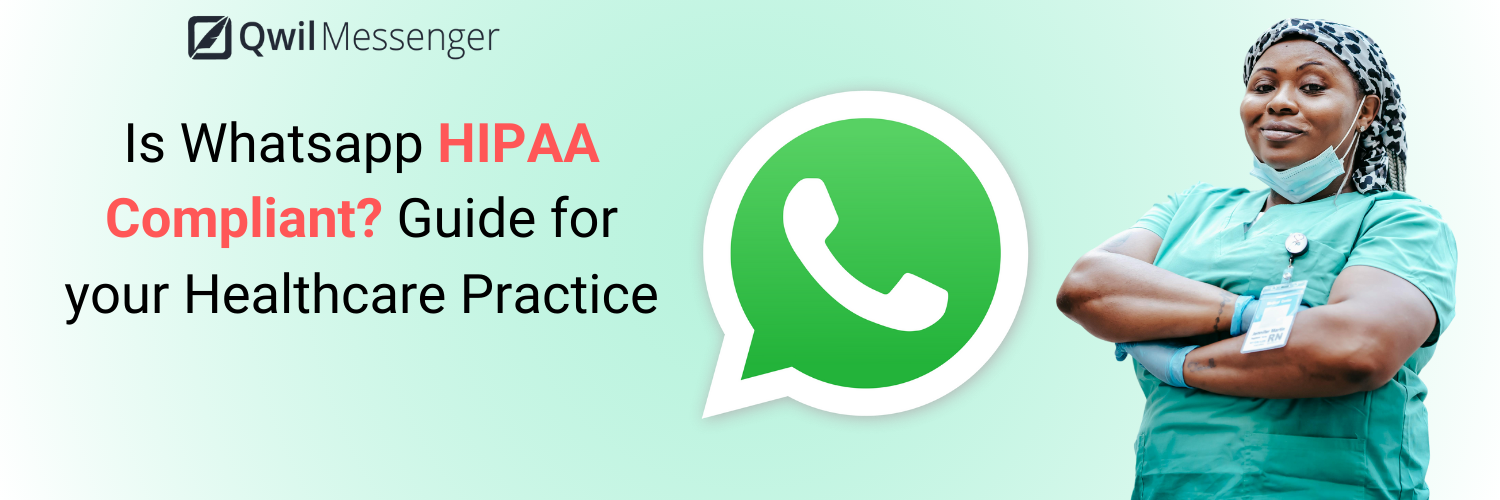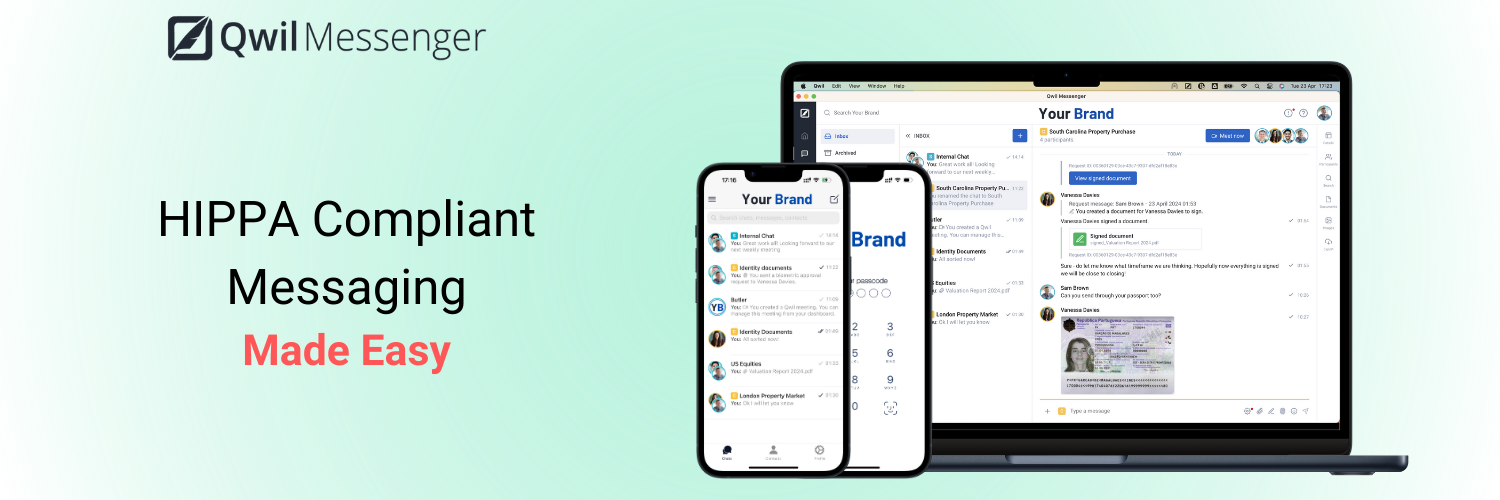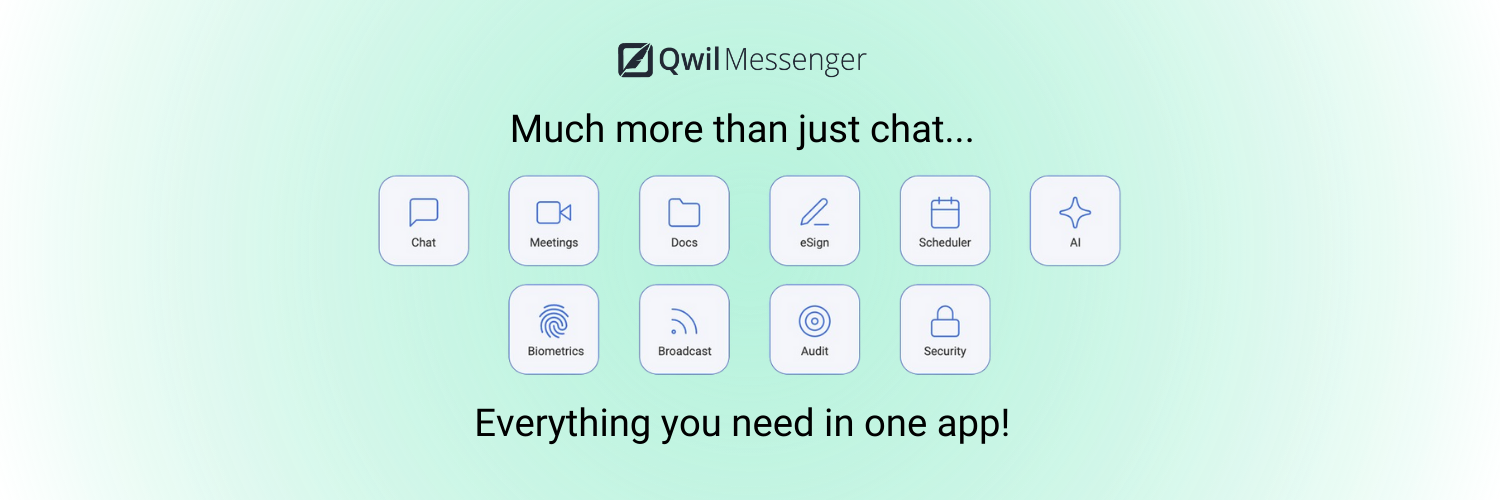Is Whatsapp HIPAA compliant?

What’s the Deal with HIPAA Compliance?
HIPAA compliance might sound like one of those complicated legal things you can ignore, but if you're in healthcare, it's non-negotiable. It’s the law that protects patient health information—also called PHI—and makes sure it stays private and secure.
Whether you're a doctor, a dentist, a therapist, or part of a clinic, HIPAA applies to you. That means any time you're sending, storing, or talking about patient info—online or offline—it needs to be done safely.
What Is PHI and Why Does It Matter?
PHI stands for Protected Health Information. It includes things like a patient’s name, medical history, prescriptions, lab results, and also billing information. Basically, anything that connects personal identity to health data.
Using or sharing PHI the wrong way can result in data breaches, lawsuits, fines, and worst of all—lost trust from patients. That’s why HIPAA compliant messaging is such a big deal.
Can You Use WhatsApp in Healthcare?
In short: no, you shouldn’t.
WhatsApp is not HIPAA compliant. It might be fast and easy to use, however it doesn’t meet the requirements set by HIPAA, especially when it comes to securing and monitoring PHI.
You might think, “But it’s encrypted, right?” Sure, but that’s not enough. This is because HIPAA requires more than just encryption.
Why WhatsApp Falls Short for Healthcare
Ok so now let's talk details. HIPAA has specific rules. Especially under the HIPAA Security Rule. Then let's take a look at how WhatsApp falls short:
-
No login monitoring – Firstly there’s no way to track who’s logging in and when.
-
No audit trails – You also can’t see message history in a secure, detailed log.
-
No access controls – If someone grabs your unlocked phone, they can read everything.
-
No Business Associate Agreement (BAA) – And that’s a deal-breaker. The final nail in the coffin.
Even if your phone is secure, WhatsApp isn’t built with HIPAA in mind. So that means using it for patient communication can put you at serious risk.
What Makes an App HIPAA Compliant?
A HIPAA compliant messaging app needs a few must-have features:
-
End-to-end encryption
-
Access control and authentication
-
Audit logs and message tracking
-
Ability to sign a BAA
-
Remote message management
-
Secure cloud backup
Anything less than that, and you’re not fully protected. So that means WhatsApp ticks maybe one or two boxes—definitely not all.
The BAA: Why It Matters So Much
A Business Associate Agreement (BAA) is a legal document that proves a third-party service provider, like a messaging app, agrees to follow HIPAA rules.
WhatsApp has openly stated they won’t sign a BAA. So that alone makes it not HIPAA compliant . Without it, even the best encryption in the world doesn’t make it okay to send patient info on the app. Therefore this alone, is enough to break the deal.
At Qwil Messenger , we provide signed BAAs to all of our HIPAA clients. It’s just part of what we do to help you stay compliant.
The Real Risks of Using WhatsApp
Still thinking about using WhatsApp anyway? Here’s what you’re risking:
-
Big fines – HIPAA penalties can reach up to $50,000 per violation.
-
Data leaks – You can’t control what happens if someone screenshots or forwards a message.
-
No traceability – If something goes wrong, there’s no audit log to figure out what happened.
-
Loss of trust – Patients may not return if they find out their info was at risk.
When it comes to patient data, cutting corners just isn’t worth it. HIPAA security rules are in place so that your business can protect your patients.
Patients Deserve Better Protection
Patients trust you with some of the most sensitive information that they have in their lives. So they expect that info to be safe—even if they don’t know all the details about HIPAA.
Using a HIPAA compliant messaging platform like Qwil Messenger shows patients you care about their privacy and are doing everything you can to protect their data.
But What If a Patient Wants to Use WhatsApp?
Here’s a tricky one. Sometimes, a patient will ask you to send updates or messages via WhatsApp.
HIPAA says you can use a non-compliant platform— However only if the patient asks for it , understands the risks, and you document their request. But that should still be a last resort. That means that you still need to educate patients and suggest safer alternatives whenever possible.
At Qwil Messenger, we make the transition easy so that patients can access secure messaging without needing to download complicated apps or create accounts from scratch. Everything is managed on your end. You invite your patient to Qwil, and all that is needed on their end is to verify their account. Once they are in, they stay in, with the appropriate access control as per their device.
Best Practices for Secure Communication
So if you’re serious about compliance, here’s what you and your team should be doing:
-
Only use secure, HIPAA compliant messaging apps
-
Train staff regularly on HIPAA rules
-
Avoid sharing PHI on personal devices
-
Document all patient communication
-
Regularly review and update communication policies
These best practices aren’t just for avoiding fines—they help you build a better, safer healthcare experience. And therefore, more peace of mind for everyone involved. The reputation of your medical business relies on trust.
Qwil Messenger: Built for HIPAA Compliance
So now let's talk about the solution. At Qwil Messenger, we’ve built a messaging platform that does it all:
-
Full end-to-end encryption
-
Access control for all users
-
Audit trails to track communication
-
Remote wipe and data management
-
Signed BAA with every healthcare provider
We don’t just say we’re HIPAA compliant messaging —we’ve designed every part of our platform to help you meet HIPAA standards easily.
Why Choose Qwil Over WhatsApp?
Still not convinced? let's take a look at a side-by-side comparison:
|
Feature |
|
Qwil Messenger |
|---|---|---|
|
End-to-End Encryption |
✅ |
✅ |
|
Access Controls |
❌ |
✅ |
|
Audit Trails |
❌ |
✅ |
|
BAA |
❌ |
✅ |
|
Remote Wipe |
❌ |
✅ |
|
Secure Cloud Backup |
❌ |
✅ |
|
Designed for Healthcare |
❌ |
✅ |
|
HIPAA Compliant Messaging |
❌ |
✅ |
When patient data is on the line, why settle for anything less than a platform built for privacy, security , and compliance?
Healthcare Organizations Have a Duty
Whether you're part of a private practice, a hospital, or a clinic, you have a legal and ethical responsibility to protect PHI. That includes choosing the right communication tools and keeping up with HIPAA compliance.
-
Conduct regular security audits
-
Review your messaging tools
-
Provide compliance training for staff
-
Have a plan for handling potential breaches
At Qwil Messenger, we support healthcare organizations by offering easy onboarding, secure messaging, and also ongoing compliance support.

Make the Safe Switch Today
We get it—switching messaging platforms can feel like a big step. But with Qwil Messenger, it’s smooth and simple. We provide everything you need to move your communications to a secure, HIPAA compliant platform without missing a beat.
Our dedicated team will onboard your practice over a video call. Making sure everyone is trained and up to scratch on the platform. We will then help you to onboard your clients too!
Whether you're handling appointment reminders, prescription updates, or even general check-ins, Qwil Messenger gives you a safe, easy way to connect with patients and colleagues.
Final Thoughts: WhatsApp Isn’t Enough
In the world of medical care practitioners, privacy has always been a huge issue. So that is why HIPAA laws came about, to make sure everyone is regulated and compliant in the era of technology. You wouldn't want just anyone to be able to see your medical records, so why do we allow for the risk online?
The answer should be, we don't.
So now let's sum up the facts:
-
WhatsApp is not HIPAA compliant.
-
Using Whatsapp to share patient information is risky and potentially illegal.
-
HIPAA compliant messaging apps like Qwil Messenger offer a secure, legal, and professional alternative. As well as being user friendly and compliant.
-
Your patients—and your practice—deserve better protection.
Choose Qwil Messenger. Stay compliant so your patients stay secure.
Are you a healthcare provider looking for the best HIPAA Compliant messaging software? Get your Qwil free trial here
